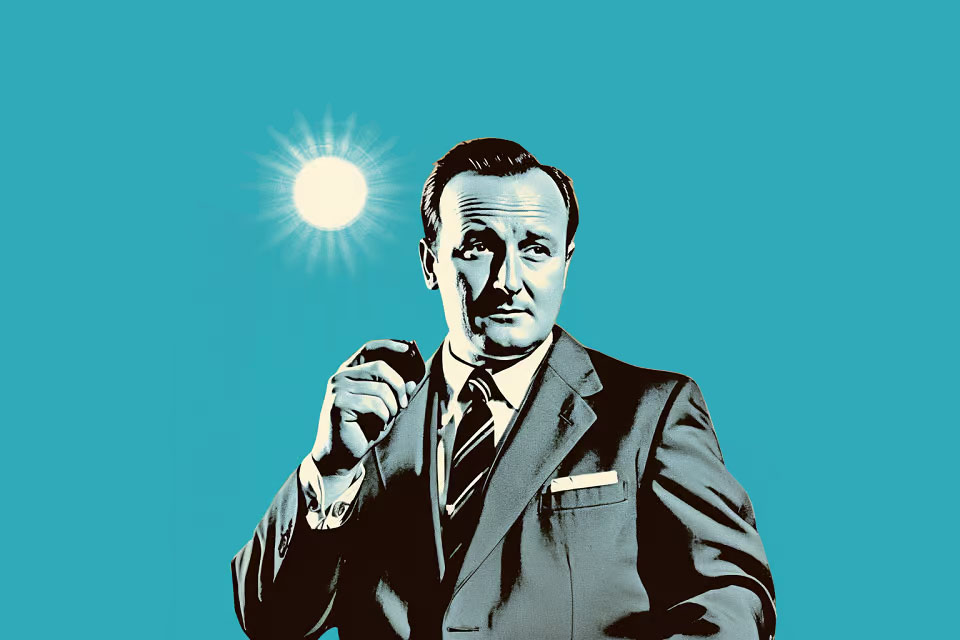What if? – A call to thought experiments
“Don’t Uber yourself”¹ headlined Michael Schenkel recently here on the blog. On the one hand, the post earned my approval. Numerous organisations copy Spotify’s organisational model, want to create a platform like AirBnB or build garages for more innovation. But Cargo-Kult² does not guarantee results. Good benchmarking is important in order not to lose sight of competitors and to become complacent.
On the other hand, I was also missing something and had a sense of disturbance when reading. If we only compare ourselves with our “classmates”, aren’t we frying too much in our own juice? What happens if tomorrow “a newcomer comes into the classroom” who doesn’t know the beliefs of our industry? Will I be successful if I imitate the “best in class”? If I am the “best in class” myself, it feels like driving in a rearview mirror. Which brings us to Germany’s favorite industry – the automotive industry. And in a thought experiment.
What if there wasn’t a competition?
In recent months, the automotive industry has gambled away its good reputation to some extent. When my sons first heard about the diesel scandal, they asked why there was competition at all. All the car manufacturers could simply work together and develop and sell a clean car together! I explained to them what a monopoly is and that competition stimulates business. But the question didn’t let me go. My blogger colleague Bianka Groenewolt introduced me to the “What if” questioning technique and we started the German blog parade of the same name. So I finally asked myself: What if there was no competition?
“What if? I have used it ever since as a tool to question mental and self-imposed boundaries. The questions can be used for oneself, in the company or also for social challenges. I would like to illustrate this with three examples.
Questioning personal boundaries
I’ve asked myself before, “What if I get fired tomorrow?” The following thoughts I have made for myself:
- Who would I call from my network? Immediately I had a list ready for the case of cases. This also means that I maintain my network and listen to what people are currently doing.
- What would I limit to living on unemployment benefits or reserves for a while? On that occasion you will notice things that you might be able to leave out without losing income. You also become grateful for many things that you take for granted.
- Which activities in my profession would I not cry tears after? Through the exercise I have skipped one or two meetings and reduced my capacity for some nonsensical activities.
A nice side effect of this thought experiment is that you get through your daily work much more relaxed and have more confidence in yourself. Because the worst thing that can happen is once you’ve played through it and you don’t find it so bad anymore.
Questioning the limits of the company
Surely there is something in your company that causes trouble again and again. Perhaps there is also a big challenge that seems insoluble. These are the perfect candidates for “What if” questions. Travel expense guidelines are such an annoying topic. So, what if we abolish the travel expense guidelines?
On the one hand, there are of course many advantages. You would save a lot of effort in controlling for monitoring. It also gives the people in the company more flexibility. For example, you can book the savings offer in first class without having to ask a lot of questions. You let the colleague who already had a slipped disc fly in Business Class. Instead of the hotel from the preferred hotel list, you can also search for overnight accommodation via AirBnB.
On the other hand, there are certainly concerns that suddenly the great waste of travel expenses takes place. This is where you can start and generate ideas on how to prevent it. One could make the travel costs in the team transparent and solve the problem by peer pressure. Perhaps this will also force you to share tips and tricks for the economical use of travel costs within the company.
Questioning the limits of society
What if all major German cities were car-free? The question is not as radical as it seems at first glance. In the 50s and 70s there were regularly car-free Sundays. In Stuttgart, a fine dust alarm means leaving the car parked. In London, the city toll is an attempt to keep traffic out of the city.
So what would be the advantages? There would be no more traffic jams. There would be less fine dust pollution. Because you don’t need multi-storey car parks and fewer streets, there is a lot of space that you can use for other purposes.
But there are also many challenges that need to be solved. Where do you park all the cars that come from the surrounding area? How do you ensure that visitors arrive car-free? How do you manage the rush hour in which people drive into the offices? Ideas could be generated and experiments started for the many challenges that have to be mastered.
What good will that do me?
You may now think that these are perhaps quite nice thought games. But what do you get out of it now? I see three advantages:
- Barriers become visible. In all three examples obstacles or disadvantages were identified. Through the thought experiment these become visible and thus also solvable.
- Innovations are made possible. The example of the car-free city clearly shows how much innovation potential a thought experiment can bring to light. Numerous ideas for mobility solutions emerge immediately. There are also certainly numerous ideas for the new use of space. This can even go so far as to rethink an entire city.
- Surprises are possible. In a networked and complex world, surprises happen all the time. Both companies and we as individuals usually try to prevent surprises. There is a lot of potential in surprises. Successful entrepreneurs act according to the principles of Effectuation. One of the principles is useful coincidences.
Perhaps you will find further advantages of the “What if? thought experiment. I would therefore like to encourage you to venture thought experiments. Which ” what if” questions do you ask yourself? What surprises do you look forward to and what opportunities can you seize?
Notes:
[1] Here you can find the blog post Don’t Uber yourself.
[2] Cargo cult at Wikipedia
If you like the article or want to discuss it, feel free to share it with your network.
Tobias Leisgang has published more interesting articles on the t2informatik Blog:

Tobias Leisgang
‘The future is the only place I’ll spend the rest of my life’ – Charles Kettering was right and Tobias Leisgang takes this quote very seriously. After studying electrical engineering, he developed semiconductors, researched the latest technologies with global teams and made the supply chain of an automotive supplier fit for the future.
Today, he helps small and medium-sized companies develop sustainable business models – with a great deal of foresight and a dash of pragmatism. Because there are often many decisions to be made between good ideas and their implementation – and that’s exactly where Tobias comes in: in ‘Kopf & Bauch – Der Podcast der Entscheidungen’, he provides exciting insights into how to make them.
And because standing still is not an option for him, Tobias continues his journey as a future shaper – not in a fancy suit, of course, but as a student in the future design programme. After all, who says you can never learn enough?


